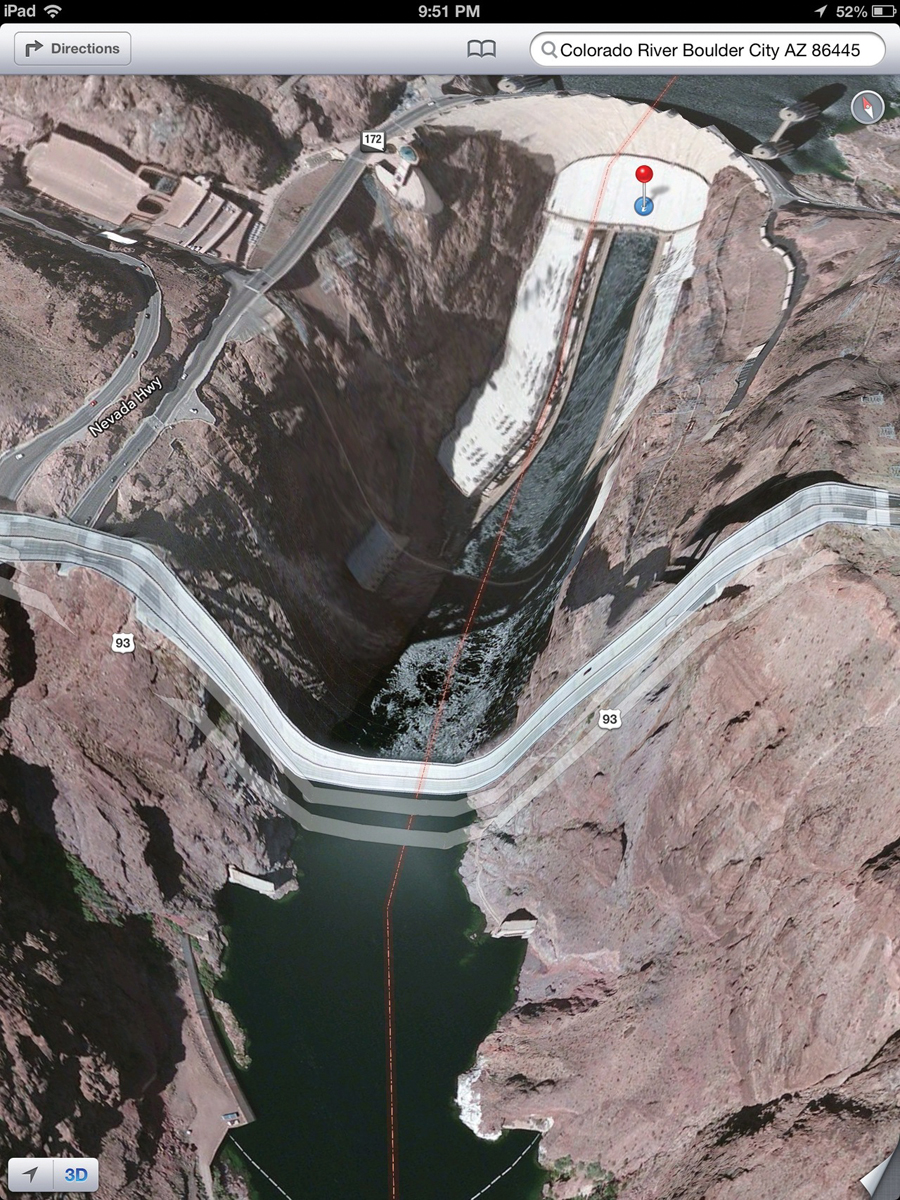iOS 6 Maps: what went wrong?
Apple Maps was meant to be an improvement on Google Maps, but something went awry
While there have been obvious technical failures, the big question is why Apple had to ditch the reliable Google Maps in the first place.
It's a long story that stretches back to the days when Google CEO Eric Schmidt occupied a prized place on Apple's board, in the pre-Android days when Google wasn't in direct competition with Apple in the mobile space. If you watch the launch of the original iPhone in 2007 on YouTube you'll even see Eric Schmidt sharing the stage with Steve Jobs to introduce Google Maps on the iPhone.
"You can't think about the Internet without thinking about Google," said Jobs as he introduced Schmidt. In fact the companies were so close at the time that Schmidt even joked about merging them into "Applegoo".

Fast-forward a couple of years and the Applegoo love-fest had turned sour. Schmidt quit the Apple board and Google launched Android, leaving Steve Jobs apoplectic with rage, accusing Google of stealing Apple's ideas.
"I will spend my last dying breath if I need to, and I will spend every penny of Apple's $40 billion in the bank, to right this wrong," Jobs told his biographer Walter Isaacson. "I'm going to destroy Android, because it's a stolen product. I'm willing to go thermonuclear war on this."
While both companies are blaming each other for dropping the Google Maps app from iOS 6, the key sticking point seems to have been turn-by-turn navigation. Google Maps on Android has it, and Apple wanted to incorporate it into iOS 6.
Google naturally wasn't keen to give away one of Android's key advantages, and it became clear Apple would have to go its own way if it wanted this feature on the iPhone.
Get daily insight, inspiration and deals in your inbox
Sign up for breaking news, reviews, opinion, top tech deals, and more.
New tech

Despite a difficult birth, Apple Maps does have the potential to be great. While Google Maps uses a series of graphical tiles to represents different zoom levels, Apple Maps was built from the ground up to use vector images, so zooming in and out is super smooth.
It's also faster and requires far less data to be delivered over the internet, since processing the different zoom levels can all be done on the phone without having to reload the graphics for each stage.
Street View is still unique to Google Maps though, and there are no plans for Apple to adopt a similar system, which most see as a major disadvantage.
In one sense the Apple Maps fiasco is just a short-term problem for Apple. As users report the problems, and they get fixed, Maps will get better and better. We'd expect Maps to be in pretty good shape by this time next year.
But many are left wondering whether Apple should have been so bold about Maps at the launch of the iPhone 5 if they knew that there were so many problems with it. With hindsight it might have been better to announce that it was in beta, and was expected to improve over time - after all, that's what Google seems to do with all its web products.
Google Maps has existed for a good number of years now - and with hindsight it seems impossible to expect a brand new mapping application to have the same level of detail and accuracy as such an established product.
Perhaps the good news is that Apple Maps is not set in stone; Apple encourages all its users to submit reports of any inaccuracies, so it should improve over time - there's also a new iOS 6.1 beta, too.
And will a Google Maps app ever appear in iOS 6? There are rumours that we'll get it, but we'd say don't hold your breath. Nokia, however, has capitalised on the issue and has released its decent HERE mapping on iOS.
The rift between Apple and Google is only going to keep on widening.

Graham is the Senior Editor for AI at TechRadar. With over 25 years of experience in both online and print journalism, Graham has worked for various market-leading tech brands including Computeractive, PC Pro, iMore, MacFormat, Mac|Life, Maximum PC, and more. He specializes in reporting on everything to do with AI and has appeared on BBC TV shows like BBC One Breakfast and on Radio 4 commenting on the latest trends in tech. Graham has an honors degree in Computer Science and spends his spare time podcasting and blogging.